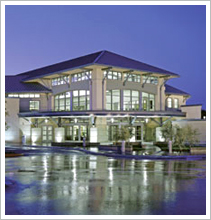 Memory is a bear.
Memory is a bear.Well, not really. It is a cognitive process for storing and recalling information. But let's put that aside for a moment and see the bad metaphor out.
For some people, the act of remembering things is simple. They have disciplined themselves in such a way that the wild beast of memory becomes a trained bear riding a bicycle in the circus. In other words, the amount they can remember and recall is both impressive and entertaining, but ultimately unnatural, freakish, and a little depressing when you think about the work that went into learning how to do that. For others, like myself, memory is more like the grizzlies in the film Grizzly Man. Sometimes it plays nice and sometimes it revolts (though it rarely devours you in a tent thankfully).
The high side of that retention spectrum is documented in Joshua Foer's book Moonwalking With Einstein. He was writing about competitive memory (yep, it's a sport), but he decided that in order to understand it better he would try training as a contestant. By doing so, he learned how people can structure their thoughts to remember the exact order of the cards in 25 shuffled decks or the number pi to an absurd amount of decimals. He also became the U.S. Memory Champion. So, you know, apparently it works.
These herculean tasks of memory are achieved through mnemonic devices. Many of us learned a few rudimentary ones in grade school. You may have been taught "Roy G. Biv" to remember the colors of the rainbow or "My Very Educated Mother Just Served Us Nine Pizzas" to remember the order of the planets (and the root cause of adolescent obesity).
Those are nothing compared to what the competitive memory folks use. They create elaborate "memory palaces" in order to keep track of everything. A memory palace is an imagined structure which bits of information are tucked away into. The idea is that the brain is more visual than factual. So when it comes to recalling that information, the person can just visualize walking through the structure and then they will "see" the information inside of it. Or at least I think that's the gist of it. It seems complicated. And fascinating. And a little pointless.
This isn't really functional memory that they are dealing with. The rote memorization of a list of names is far different from remembering the name of a girl you went to middle school with when she pops into your work one day (sorry... Sarah? It was good seeing you though). Remembering that you left your keys in your other pair of pants before you lock yourself out of the house seems far more valuable than remembering a sequence of random numbers... unless, of course, life or death hangs on knowing that sequence. And I would absolutely love, LOVE, to be able to remember what I just stood up to do. But I can't. So I'm going to sit back down again.
Then again, perhaps the practice of remembering insignificant things leads one to the ability of remembering significant things. I suppose it's worth trying. It can't hurt, right? But, considering my absent minded manner, it might be better to start out building a memory tent instead of a palace. And hopefully the memory bear won't come and thrash it.
posted by jw

